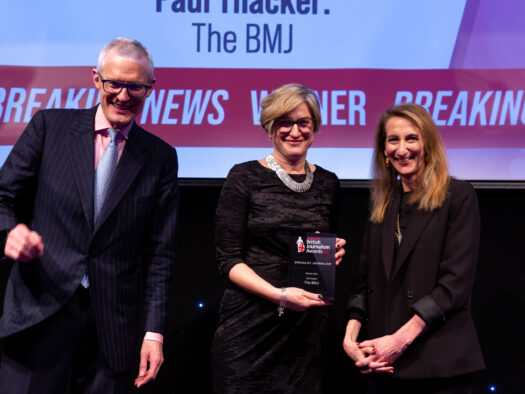This category is aimed at specialist and trade publications. Specialist journalists working in other media can enter if they are not covered by one of the other categories. The judges are looking for work which shows journalistic skill and rigour, is revelatory and which serves the public interest.
For print/online entries, please provide up to three examples of work. Broadcasters can submit up to three clips or one entire programme in support of their entry. A supporting statement of up 500 words must also be included. Collaborative entries are accepted. Work should have been published between 1 September 2023 and 31 August 2024 and aimed at a UK audience.








